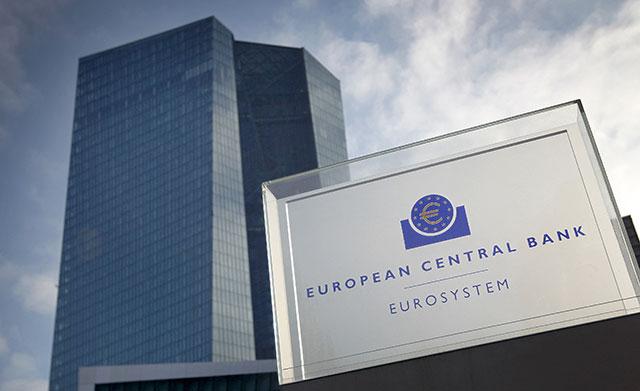You are here
Eurozone economy grows more than expected in Q2
By AFP - Jul 30,2024 - Last updated at Jul 30,2024
BRUSSELS, Belgium — The eurozone economy grew faster than expected in the second quarter despite Germany's poor performance, official data showed on Tuesday, easing fears over the region's recovery.
The single currency area is doing better than in 2023, but economists remain concerned for the rest of this year despite the expected boost from the Olympic Games in France.
The EU's official data agency said the 20-country single currency zone recorded growth of 0.3 per cent over the April-June period, beating economists' forecasts.
Analysts surveyed by FactSet and Bloomberg had expected growth of 0.2 per cent.
That comes after the eurozone also grew by 0.3 per cent in the first quarter of this year, breaking away from stagnation in the second half of 2023.
The better-than-hoped-for growth will delight many but concerns remain over Germany, Europe's largest economy, which is weighing on the eurozone's performance.
Germany's output contracted by 0.1 per cent in the second quarter, Eurostat data showed.
There are, however, warning signs for the European economy after data last week showed business activity in the eurozone slowed further in July, with persistent weakness in the manufacturing sector.
"The eurozone economy is quite like the water quality of the Seine: some days it may look okay but overall it's poor enough to continuously worry about it," said ING Bank's Bert Colijn, referring to concerns about whether Paris' river is clean enough to host Olympic open-water swimming events.
He said the figures would not hinder any moves by the European Central Bank (ECB) to further lower interest rates, although the Frankfurt-based institution has said more time is needed before any more rate cuts.
Other economists have said the data backs the ECB's thinking that there is no rush.
"For the European Central Bank, this means that rate cuts very much continue to be on the table as domestic demand is unlikely to cause much of an inflation push," he said.
France, Spain beat expectations
The eurozone however recorded smaller growth than in the United States and China, which both recorded expansion of 0.7 per cent in the second quarter.
The International Monetary Fund expects the eurozone to grow by 0.9 per cent in 2024, compared with 2.6 per cent for the United States and 5 per cent for China.
In stark contrast to Germany, France, the eurozone's second biggest economy, and Spain, the fourth, beat forecasts to grow in the second quarter by 0.3 per cent and 0.8 per cent respectively.
France is currently hosting the Olympic Games in Paris, which Capital Economics said should give "a small boost" to the eurozone economy in the third quarter of 2024.
Growth in Spain, one of the region's strongest performers, was driven by exports and strong household spending, while in France, output grew thanks to foreign trade and a recovery in corporate investment.
Southern Europe appeared to be doing better than its counterparts elsewhere on the continent.
Italy and Portugal recorded expansion of 0.2 per cent and 0.1 per cent respectively.
Tuesday's data also showed the 27-country European Union's economy, which includes some non-euro countries, also expanded by 0.3 per cent in the second quarter.
All eyes will be on eurozone inflation data for July which will be published on Wednesday. Consumer prices remain above the ECB's two per cent target.
Related Articles
BRUSSELS — Economic growth in the eurozone contracted in the third quarter, data showed on Tuesday, hit by the European Central Bank's (ECB'
The European Central Bank (ECB) will launch into quantitative easing (QE) next week having increased its economic growth forecasts for this year and next.
FRANKFURT — The European Central Bank (ECB) on Thursday kept its massive pandemic-fighting stimulus package in place, in a bid to help Europ













